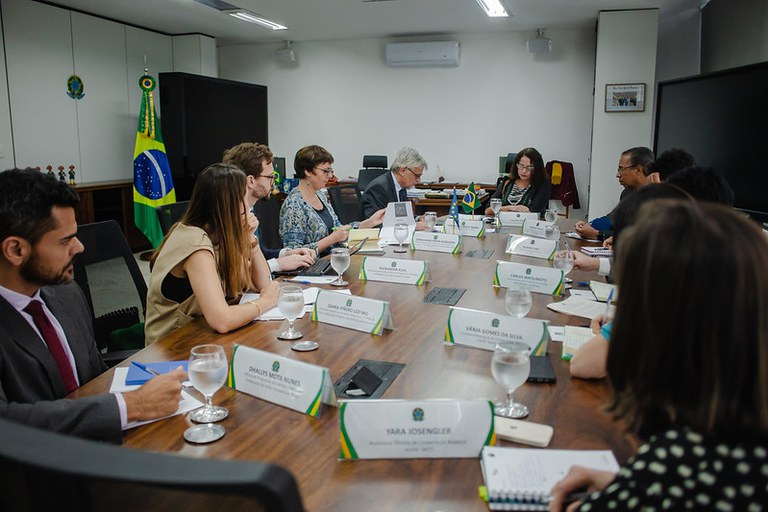The Minister of Science, Technology and Innovation, Luciana Santos, received Thursday (6) the Ambassador of the European Union to Brazil, Ignacio Yebanez, to discuss strengthening scientific cooperation between Brazil and the European bloc.
“President Lula understands the importance of a foreign policy of peace, exchange and dialogue, in search of an arrangement that guarantees a win-win policy for all,” the minister said. He added, “We have very comprehensive cooperation with the European Union in the areas of digital, space and oceans, to name a few, and I reaffirm our full interest in developing this partnership more steadily.”
In the field of space, the Minister spoke about the sharing of data collected by Brazilian and European satellites and highlighted the importance of Brazilian data for monitoring deforestation, which is one of the priorities of President Lula’s government.
Semiconductors – The minister also noted that the European Union is developing European chip law – Planning to strengthen the semiconductor area and reduce external dependency. In the same vein, he pointed to MCTI’s efforts to reverse the liquidation of Ceitec, a semiconductor development and manufacturing company. This measure is strategic in an attempt to re-industrialize the country.
Connection – The EU ambassador, Ignacio Yebanez, advocated deepening cooperation in priority areas. “For us, cooperation in the scientific and technological field is very important. We have common priorities in the areas of green, digital and social transformation, which include digital inclusion,” he explained.
He also highlighted the Bella Project (Building Europe’s Connection with Latin America), which addresses the long-term interdependence requirements of the research and education communities in Europe and Latin America. “It establishes a direct digital connection between Europe and South America. It previously passed through the United States. We want to extend this initiative to all of Brazil,” he explained.

“Hardcore beer fanatic. Falls down a lot. Professional coffee fan. Music ninja.”



![[VÍDEO] Elton John’s final show in the UK has the crowd moving](https://www.tupi.fm/wp-content/uploads/2023/06/Elton-John-1-690x600.jpg)


More Stories
The Director of Ibict receives the Coordinator of CESU-PI – Brazilian Institute for Information in Science and Technology
A doctor who spreads fake news about breast cancer is registered with the CRM of Minas
The program offers scholarships to women in the field of science and technology